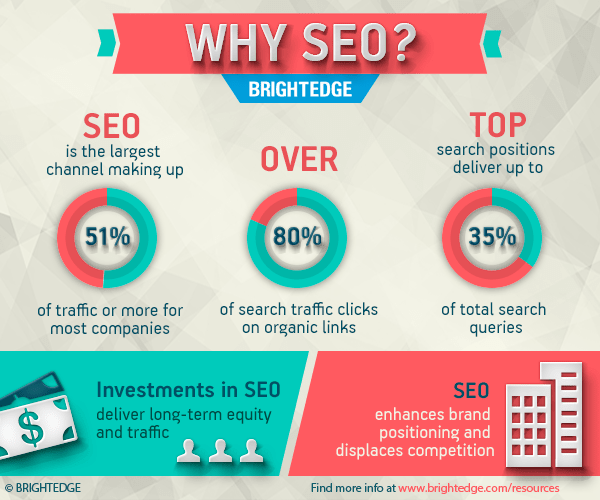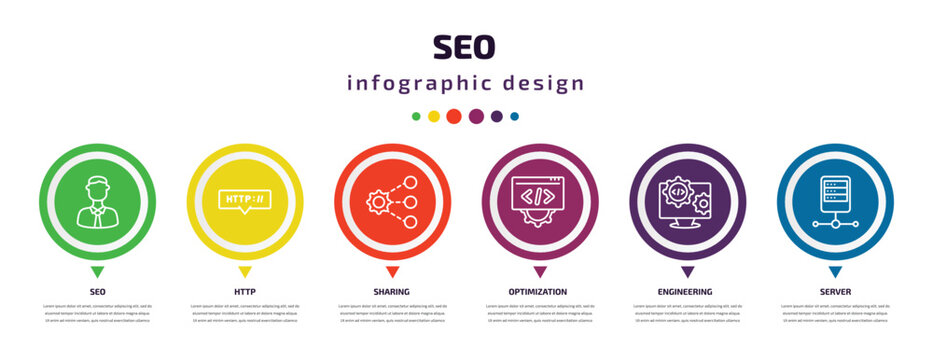Uncover the mystery behind SEO and discover how it can transform your online presence and boost your website’s visibility.

Image courtesy of via DALL-E 3
Table of Contents
Introduction to SEO
Do you ever wonder how websites show up when you search on Google? That’s all thanks to SEO, which stands for Search Engine Optimization. Just like how you try to make your favorite video game character stronger by collecting power-ups, SEO helps websites become more powerful in the online world.
What Does SEO Stand For?
SEO stands for Search Engine Optimization. It helps websites show up higher on search engines like Google. Imagine you have a lemonade stand, and you want more people to visit and buy your lemonade. SEO is like putting up signs all over town so more people can find your stand.
Why is SEO Important?
SEO makes it easier for people to find your website when they search online. Think of it as making your website more popular. Just like how you want to be the first player to reach the finish line in a race, websites with good SEO want to be the first to show up when someone searches for something online.
How Search Engines Work
Search engines are websites that help you find things online by typing in words or questions. They are like super smart librarians that can find information on almost anything you want to know about.
How Do Search Engines Find Websites?
Search engines use crawlers, which are little programs that go around the web and look at websites. These crawlers read the information on websites and follow links to discover new pages. They collect this information to create a huge database of websites called an index.
How Do Search Engines Rank Websites?
Search engines rank websites based on how useful and trustworthy they are. When you search for something, the search engine uses its index to decide which websites are the best match for your search. Websites that are relevant, have good content, and are linked to by other trusted websites are more likely to show up at the top of the search results.
Keywords and Their Importance
Keywords are like magic words that help search engines understand what your website is all about. They are the secret codes that lead people to your online doorstep. Let’s dive into the world of keywords and why they are so important!

Image courtesy of network9.biz via Google Images
What are Keywords?
Keywords are specific words or phrases that describe the content on your website. They act as clues that tell search engines like Google what your website is all about. For example, if you have a website about cute kittens, your keywords might be “adorable kittens,” “fluffy cats,” or “kitten videos.”
Choosing the Right Keywords
When selecting keywords for your website, it’s essential to pick the ones that match what people are searching for. Think about what words someone might type into a search engine to find your website. By using relevant keywords, you make it easier for search engines to connect you with the right audience.
Imagine you’re trying to find a recipe for chocolate chip cookies. You wouldn’t search for “spicy taco recipe,” right? The same goes for your website – choose keywords that align with what your website offers to attract the right visitors.
On-Page SEO
On-page SEO is all about what you can do on your own website to improve its ranking on search engines like Google. By focusing on your website’s content, titles, and meta tags, you can make it easier for people to find you online.
Good Content is Important
One of the most important things you can do for on-page SEO is to write interesting and useful content. When your content is relevant and valuable to your audience, people are more likely to visit your website and stay longer, signaling to search engines that your site is worth showing to others.
Page Titles and Meta Tags
When creating pages on your website, make sure to use clear and helpful titles that accurately describe the content on the page. Additionally, include meta tags, which are short pieces of information that help search engines understand what your page is about. By optimizing these elements, you can improve your website’s visibility in search results.
Using Keywords Correctly
Keywords are specific words or phrases that people use when searching for information online. By including relevant keywords in your content, you can make it easier for search engines to understand what your website is about. However, it’s important not to overuse keywords, as this can make your content sound unnatural and spammy.
Off-Page SEO
Backlinks are links from other websites to yours. They show search engines that your website is trusted. It’s like your website getting a vote of confidence from other sites.

Image courtesy of slidesgo.com via Google Images
Social Media
Sharing your website on social media can help more people find it. When you post links to your website on platforms like Facebook, Instagram, or Twitter, it can drive more traffic to your site.
Technical SEO
When it comes to improving your website’s performance in search engine results, technical SEO plays a crucial role. Let’s dive into the technical aspects that can help boost your website’s visibility.
Website Speed
One of the key technical aspects of SEO is ensuring that your website loads quickly. Just like how you don’t like waiting for a slow webpage to load, neither do search engine users. Website speed is an important factor that can affect your site’s ranking on search engines.
Mobile-Friendly Websites
With more and more people browsing the internet on their smartphones and tablets, it’s essential for your website to be mobile-friendly. This means that your website should not only look good on mobile devices but also provide a seamless browsing experience. Mobile-friendly websites are favored by search engines and can help improve your SEO.
Measuring SEO Success
Measuring the success of your SEO efforts is crucial to understanding how well your website is performing online. By using analytics tools and tracking important metrics, you can see the impact of your SEO strategies and make informed decisions to improve your website’s visibility. Let’s explore how you can measure SEO success.

Image courtesy of www.brightedge.com via Google Images
Using Analytics Tools
Analytics tools are essential for monitoring and analyzing the traffic and performance of your website. These tools provide valuable insights into how many people are visiting your website, where they are coming from, and what actions they are taking on your site. By tracking this data, you can identify what is working well and what areas need improvement.
Important Metrics
When measuring SEO success, it’s important to look at key metrics that indicate the effectiveness of your efforts. Here are some important metrics to consider:
- Page Views: This shows how many times a page on your website has been viewed. Higher page views indicate that your content is attracting visitors.
- Bounce Rate: The bounce rate measures the percentage of visitors who leave your website after viewing only one page. A high bounce rate may indicate that your content is not engaging enough.
- Conversion Rate: This metric shows the percentage of visitors who take a desired action on your website, such as making a purchase or signing up for a newsletter. A high conversion rate indicates that your website is effective in achieving its goals.
By regularly reviewing these metrics and making adjustments to your SEO strategies, you can track your progress and continuously improve the performance of your website.
SEO Best Practices
When it comes to SEO, there are some key best practices and guidelines you should follow to improve your website’s visibility and ranking on search engines. Here are some important things to keep in mind:
Follow the Rules
It’s crucial to always follow the rules set by search engines when optimizing your website. Trying to cheat or trick the system can result in penalties that harm your website’s ranking. Ethical SEO practices are the way to go!
Keep Learning
SEO is a dynamic field that constantly evolves. It’s essential to keep learning about new trends, techniques, and updates in SEO to stay ahead of the curve. By continuing to educate yourself, you can adapt to changes and keep your website performing well in search results.
Conclusion
In this article, we have explored the essential concept of SEO or Search Engine Optimization. SEO stands for Search Engine Optimization, and it plays a crucial role in helping websites rank higher on search engines like Google. By optimizing your website for search engines, you can make it easier for people to find your content online, just like how popular shops are easier to spot in a crowded market.

Image courtesy of stock.adobe.com via Google Images
Why SEO Matters
SEO is important because it increases the visibility of your website, attracting more visitors and potential customers. It is like putting up a bright sign that guides people to your store. The better your SEO, the more likely your website will show up at the top of search results, leading to increased traffic and more opportunities to connect with your audience.
Final Thoughts
As you learn more about SEO, remember that practicing good SEO strategies can make a big difference in the success of your website. By creating high-quality content, choosing the right keywords, and following best practices, you can improve your website’s visibility and reach a wider audience. So, don’t hesitate to start applying what you’ve learned and watch your website thrive in the online world!
Frequently Asked Questions (FAQs)
What is the Best Way to Start Learning SEO?
Start by learning what keywords are and how to use them on your website. Keywords are specific words or phrases that describe what is on your website. By understanding keywords and how they work, you can begin to optimize your website for search engines.
Can SEO Make My Website Number One on Google?
While SEO can help improve your website’s ranking on search engines like Google, there is no guarantee that it will make your website number one. SEO is a continuous process that involves optimizing your website’s content, structure, and backlinks. It’s essential to keep making improvements and staying up to date with best practices in SEO.
How Long Does It Take to See SEO Results?
It can take some time to see significant results from your SEO efforts. Search engines need time to crawl and index your website’s changes before reflecting them in search results. Be patient and continue making improvements to your website’s SEO. Over time, you should start to see positive changes in your website’s ranking and visibility.







